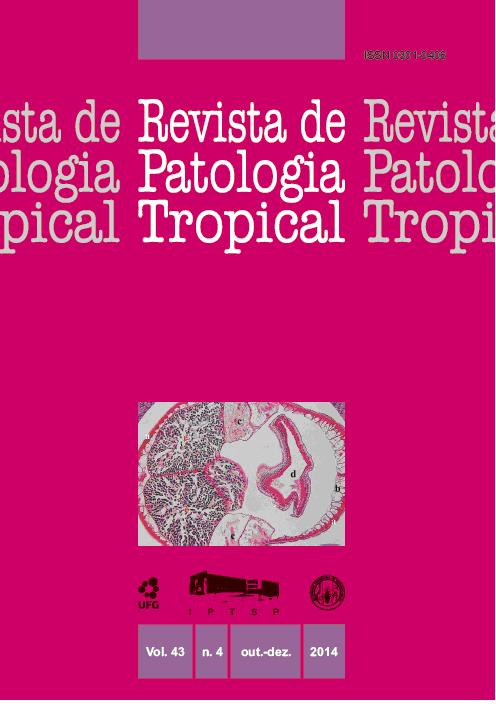OCCUPATIONAL RISK OF SPOTTED FEVER: AN EVALUATION OF KNOWLEDGE, ATTITUDES AND PREVENTION PRACTICES AMONG VETERINARY MEDICINE STUDENTS
DOI:
https://doi.org/10.5216/rpt.v43i4.33597Keywords:
tick-borne diseases, occupational health, health education.Abstract
Spotted fever (SF) is a tick-borne rickettsial disease that in Brazil affects mainly the economically active population. The occupational risk attributed to veterinarians, biologists and animal handlers is due to exposure to disease vectors. This study assessed the knowledge, attitudes and preventive practices relating to SF in a group of veterinary medicine students. A descriptive analysis was conducted among 173 students at a private higher education institution in the Brazilian Federal District. The participants were asked about their knowledge of SF, their attitudes when they found ticks on their body and practices relating to tick handling, treatment and prevention. The results showed that 84% of the respondents had heard about SF. Almost half of the respondents answered that SF is a tick-borne disease. Most respondents knew about prevention methods, and the main method cited was treatment of the animals with acaricides. Regarding attitudes towards SF, it was observed that most respondents removed ticks by hand. None of the respondents were using appropriate protective equipment when exposed to the vector. Although this population was well informed about SF and its preventive measures, this knowledge was not reflected in implementation of prevention practices.
Downloads
Downloads
Published
How to Cite
Issue
Section
License
The manuscript submission must be accompanied by a letter signed by all authors stating the full name and email address, confirming that the material has not been published or is under consideration for publication elsewhere, and agreeing to transfer copyright in all media and formats for Journal of Tropical Pathology. The authors will not be paid for published articles. They are solely responsible for the content of those articles, even if the Editor holds the right to adjust them to the norms of the journal.
The reviewers will not be paid for the peer review process.

